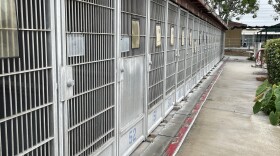MELISSA BLOCK, host:
From NPR News, this is ALL THINGS CONSIDERED. I'm Melissa Block.
MICHELE NORRIS, host:
And I'm Michele Norris.
Leaders of the G-8 are claiming success today on the issue of climate change. While meeting in Japan, the group of eight rich nations pledged to work towards the goal of cutting greenhouse gas emissions in half by the year 2050. Environmental groups, though, were not impressed.
NPR's Anthony Kuhn reports from Rusutsu, Japan.
ANTHONY KUHN: Poverty and global warming seem worlds away from the posh and green resort towns where G-8 leaders typically meet. Today, the placid waters of Hokkaido's Lake Toya were the background as Japanese Prime Minister Yasuo Fukuda announced the deal on television.
Prime Minister YASUO FUKUDA (Japan): (Through translator) We, the G-8 leaders, agreed that we will call on the international community to reduce by half global emissions of greenhouse gases by the year 2050. We confirm that this long-term goal is right and necessary for the Earth.
KUHN: But NGOs say that calling on the international community to cut emissions is not the same as actually agreeing to cut them.
Tom Sharman is a policy officer with the London-based NGO ActionAid.
Mr. TOM SHARMAN (Policy Officer, ActionAid): What they said is that if all of the other countries in the world that are involved in the U.N. climate negotiations sign up to a 50 percent cut, then the G-8 countries will do so as well, which is kind of what they've been saying for the last few years anyway.
KUHN: The G-8 statement doesn't say cut 50 percent of what. Prime Minister Fukuda said today that it was 50 percent of current emissions levels.
Philip Clapp, deputy managing director of the Pew Environment Group, says it should have been 50 percent of 1990 levels.
Mr. PHILIP CLAPP (Pew Environment Group): World emissions have grown 16 to 17 percent since 1990, and that was the level that we were talking about a year ago. And now we're going to cut 50 percent from today's emissions. So this is a much watered-down target from last year and it's not adequate to stave off the worst impacts of climate change.
KUHN: NGOs recommend at least 20 percent cuts by 2020, but today's G-8 statement sets no numerical midterm goals. On Africa, the G-8 restated their commitment made in 2005 at Glen Eagle, Scotland, to increase annual development aid to $50 billion by 2010.
Cliff Vanderlinden is chair of the G-8 Research Group at the University of Toronto.
Mr. CLIFF VANDERLINDEN (University of Toronto): So now more promises are being made in terms of water and sanitation, which was sort of a priority issue, with very little in terms of how are we going to pay for this, especially taking into account that the promises that were made in Glen Eagle aren't being funded.
KUHN: NGOs reckon that the G-8 will fall short of its $50 billion goal by $30 billion. And that shortfall is likely to cost many poor people their lives.
Anthony Kuhn, NPR News, Rusutsu, Japan. Transcript provided by NPR, Copyright NPR.






